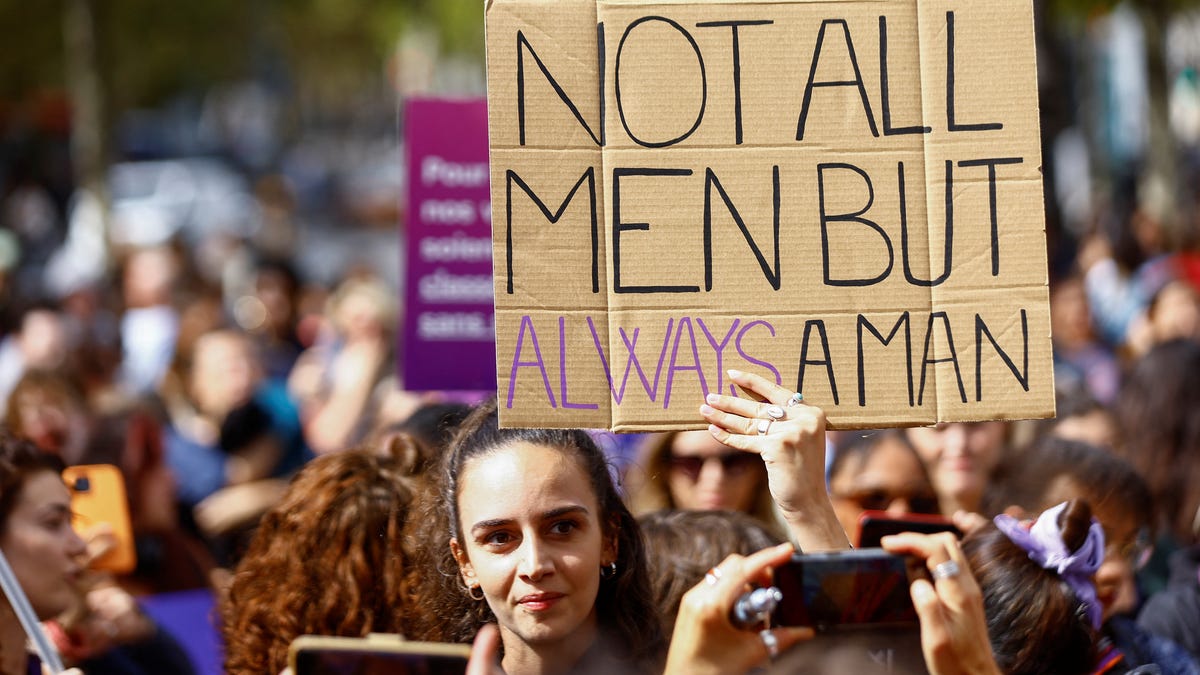They line up in front of a courthouse in southeastern France, from morning to evening, and have gathered in the thousands in cities across the country. They hold signs reading, “one rape every six minutes,” “not all men but always a man,” and “giving in is not consenting.”
They chant: “Rapist we see you, victim we believe you.”
Women across France are rallying in support of Gisèle Pelicot, a 72-year-old reluctant icon whose husband is on trial in the city of Avignon for systematically drugging her and inviting dozens of men, 50 of whom are now his co-defendants, into their home to rape her over nearly a decade.
The shocking case has sparked what many women in France call a long-overdue reckoning over “rape culture” and systemic sexism in the way the judicial system handles sexual violence.



I follow you, until the last part.
“Men don’t matter”, “women don’t matter” - those statements often seem to imply that the other gender is dominant and treats the other as disposable. This is not true - both men and women heavily suffer from bias, discrimination, and abuse - both in their own ways.
Traditional expectations hurt everybody, men and women, and should be thrown out the window. This includes a traditional concept that men are always perpetrators but not victims of abuse, among other things - something that is still commonly ignored, sometimes out of genuine ignorance, sometimes in bad faith.
I have never heard that, anywhere within the last half a century. A statement like that would be seen as misogyny of the highest order, and would have the speaker publicly crucified on the altar of public opinion.
I mean, sure - it might be uttered in dark, hidden, ChristoFascist corners, but that isn’t spoken anywhere in public like the statement “kill all men” is widely lauded and celebrated by female supremacists.
Then why have women been allowed to disgorge almost all of theirs, while men are being constantly nailed to the wall for theirs?
Women have been able to nearly completely release the “homemaker” status (yay! - honestly), but a man who wants to be a homemaker will nearly always remain a life-long bachelor. Having a prestigious, well-paying career (or, at least, the potential for one) is nearly always a woman’s first consideration in a man.
If a career-oriented man can (and frequently do) wife up some minimum-wage barista with oodles of student loans, why do career women almost always only look above their current economic level for mates? Because that is a reinforcement of traditional expectations.